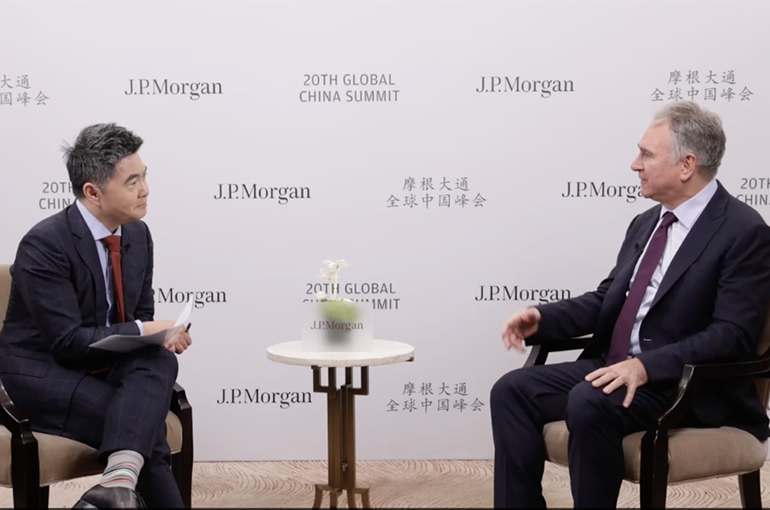
(Yicai) June 7 -- The latest tariff hikes in the United States on Chinese electric vehicles will slow the move towards a low-carbon future, Ken Griffin, founder of US financial firm Citadel LLC, said in an interview with Yicai during J.P. Morgan's Global China Summit.
Citadel's hedge funds have been among the world's most profitable over the past 30 years. The market maker business of Griffin, who is also chief executive of the Miami-based company, has a quarter of the US equity market while also operating in more than 35 countries and regions.
Below are excerpts from the interview:
Yicai: The recent tariffs imposed by the Biden administration are more targeted and dramatic than those of the Trump administration. Is that the right thing to do?
Ken Griffin: The general push towards tariffs around the world is quite sad. The world has benefited tremendously from trade where each country puts its best foot forward with what they do best.
The rise of tariffs is taking that away from consumers around the world. The Chinese took it upon themselves to build the greatest EV manufacturing capability in the world, and the increase in tariffs for Chinese EVs will take away US consumers' choice as they try to embrace a lower carbon future.
It is disappointing to see the tariffs set at such a high level that takes away consumers' choice from US consumers and punishes the Chinese entrepreneurs who had the foresight and the risk-taking to build an industry-leading capability in the field of EVs.
Yicai: Regarding climate change, what's the price of these tariffs on Chinese EVs?
Griffin: The big price is that we're simply going to use fewer EVs in the United States over the years to come, and that's going to slow down the move towards a lower carbon future. We're going to impose greater costs on US consumers by not having the competitive pressure of the Chinese EV fleets being made available to the United States.
Yicai: You have had a very constructive view on China, while some United States investors don't. How do you explain that?
Griffin: Citadel manages money for entities, sovereign wealth funds, hospitals, and universities around the world, in almost every continent we have investors from. From that vantage of being a global investor, one appreciates that China has a substantial number of industry leaders, whether in the manufacturing of solar, cellular technology, consumer goods manufacturing, EVs, and so on.
From the perspective of a global investor, China is a country rich in opportunity. From the perspective of a US investor, the geopolitical tension between our two countries makes China less investable.
I wear the hat of a global investor when I am here with you talking about China. So, if I am in the Middle East, for example, there is great enthusiasm about investing in China, it is a very different mindset.
Yicai: As a very successful hedge fund manager, how do you mitigate the geopolitical risks on a practical level?
Griffin: On a practical level, we think about the various geopolitical dynamics around the world. For example, the tension in the Middle East means that the price of oil can experience a sudden and performed shock.
So, we will look at what will happen to the value of our holdings if oil is up 50 percent over the next two to three weeks. In that environment, the price of airline stocks will fall, and the price of cruise lines will fall.
Yicai: How can China-US tensions be modeled?
Griffin: Over the last several years, the primary manifestation of the geopolitical tension between the US and China has been the imposition of tariffs. We look at if tariffs are threatened or might change and what that will do to the value of the companies we invested in.
Editor: Martin Kadiev